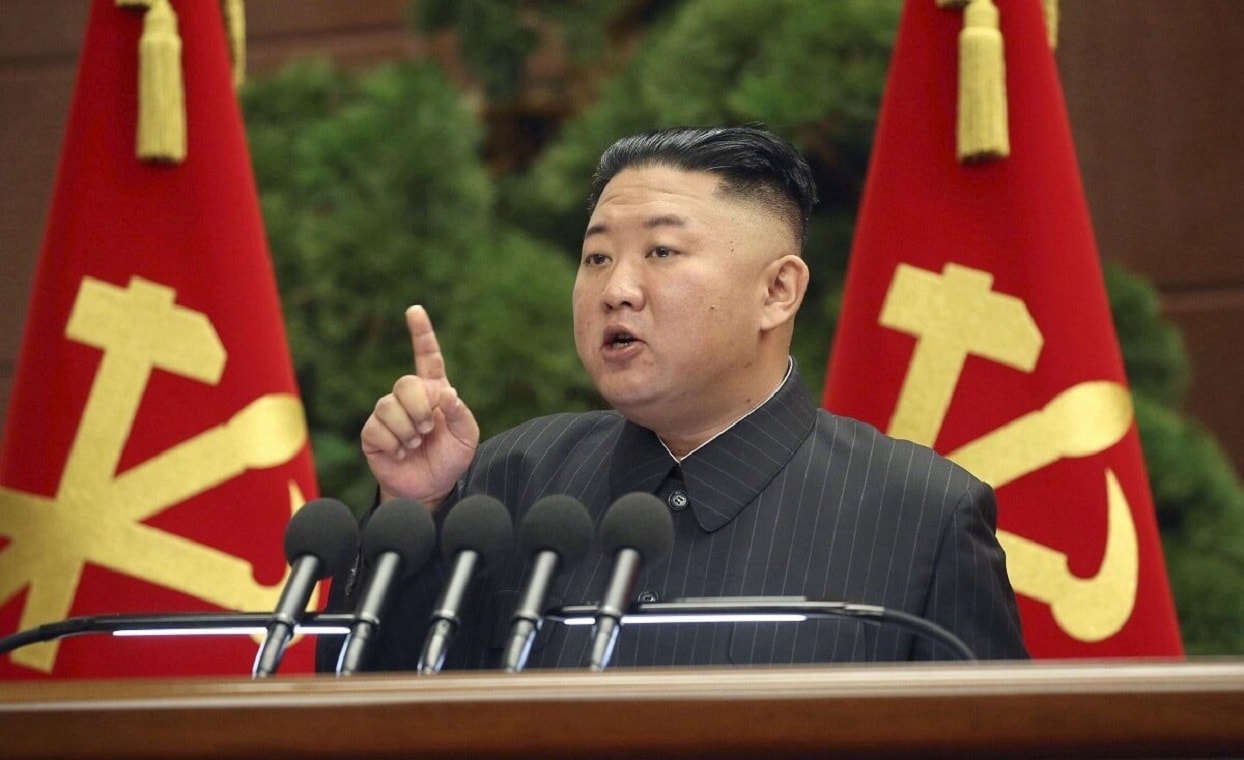“Rocket Man,” roared US President Donald J. Trump’s booming, New York accent across the speakers of the opulent United Nations General Assembly chamber, “is on a suicide mission for himself and his regime. The United States is ready, willing, and able [to totally destroy North Korea]!”
Trump was attacking the North Korean strongman at the UN because, for the months leading up to that moment, one could have cut through the tension between North Korea’s Kim Jong-un (whom Trump had brilliantly nicknamed “Rocket Man”) and America’s Trump with a nuclear-tipped intercontinental ballistic missile. Which, of course, is precisely what was occurring—and why Trump was being so belligerent and the UN.
According to reports at the time, when then-President-Elect Donald J. Trump had his infamous sit-down with outgoing President Barack Obama, one of the consistent themes of that transition meeting after Trump had won the contentious 2016 Presidential Election, was that North Korea was about to become America’s biggest headache—and that would be the case throughout the early Trump Administration.
Rocket Man Takes to the Skies
Right on cue, Kim Jong-un started popping off rockets of varying sizes in unpredictable and threatening ways, destabilizing the region, and putting the United States on extremely high alert.
There was no real diplomatic mission with the reclusive dictator of the Hermit Kingdom. Previous diplomatic missions had failed. But Trump, for better or worse, was not your typical American president.
Serious plans were drawn up by the Pentagon to invade North Korea. The Indo-Pacific region was on extremely high alert as North Korea’s nuclear brinkmanship increased with every day.
And with each unannounced North Korean missile test—it was so scary that Hawaii infamously had a false alarm that North Korean ICBM was inbound that it sent the entire island into a chaotic panic—Pyongyang’s scientists learned how to fix whatever problems existed with their growing ballistic missile arsenal.
At the height of the tension, when North Korea could not be certain if the unhinged (in their eyes) Trump would follow through on his threats, Trump did the unpredictable: he offered to meet with the unhappy North Korean dictator. These moves worried North Korea’s biggest partner, China.
In 2017, China is rumored to have tried to support a coup against Kim Jong-un by supporting Kim’s brother. Kim Jong-un sent two assassins to murder his brother at an international airport in Thailand. The security detail that was supposed to be protecting the brother was a Chinese one.
Even before that incident, Kim Jong-un’s relationship with his biggest benefactor, China, was rocky.
One of his first acts after assuming power was to murder his uncle, who was known as Beijing’s man in the Kim Family’s inner circle.
Purges of other high-ranking North Koreans with close ties to Beijing occurred subsequently. Kim, it seemed, was looking to make his regime not exclusively reliant on the Chinese Communist Party (CCP).
Enter Trump.
A Bromance for the Ages
No one—least of all President Trump—believed they’d be dealing with Kim Jong-un as Trump had.
The forty-fifth president fell into a strange bromance with Kim, who just happened to be trying to diversify his country’s alliances. The Trump-Kim bromance was extraordinary in that it not only averted what would have been an awful war. It also moved Kim from being nothing more than China’s geopolitical cat’s paw against the Americans into some other category.
North Korea was still a threat, yet Trump managed to get Pyongyang’s most hostile behavior—the increasingly sophisticated missile launches—to stop for several years thereafter.
Had Trump won reelection in 2020, it is possible that the relationship would have led to more diplomatic breakthroughs (although even the Trump-Kim bromance was souring by the end of Trump’s first term). Still, what Henry R. Nau refers to as “coercive diplomacy,” marrying the stick with the carrot, worked in reducing North Korea’s immediate threat, and opening new diplomatic possibilities.
After Trump left office, however, Joe Biden resumed the status quo American policy of diplomatically isolating and ignoring North Korea. Well, Kim Jong-un, like most successful villains, didn’t just go away. His nefarious schemes continued apace.
With Biden in office, Kim again fell under the sway of China—much more than during the Trump years.
Still looking for other friends to play with, Kim found Russia’s Vladimir Putin. The Russian strongman, engaged in a brutal war against Ukraine, needed supplies.
Sure, the North Korean supplies are subpar. But Russia is the land of quantity having a quality of its own.
The Putin-Kim Bromance Takes Flight
It now seems that Putin has replaced Trump as Kim’s new bromance (and slight counterweight to China).
In turn, Putin’s enemies have now become Kim’s enemies.
Right on cue, Pyongyang announced it was expanding their nuclear weapons arsenal. North Korea, first with China, and now with Russia, has become an important bulwark against the Western alliance along Eurasia’s Pacific coast.
Kim has ensured that the Hermit Kingdom is now a key player in the growing anti-American alliance of autocrats in Eurasia. This reality was avoidable.
Sadly, geography is often destiny, and Kim’s proximity both to Russia and China means that, short of constant US diplomacy, Pyongyang will always run to their big brothers to the north (and play Beijing and Moscow off each other, as they presently are).
A 19FortyFive Senior Editor and an energy analyst at the The-Pipeline, Brandon J. Weichert is a former Congressional staffer and geopolitical analyst who is a contributor at The Washington Times, as well as at the Asia Times. He is the author of Winning Space: How America Remains a Superpower (Republic Book Publishers), Biohacked: China’s Race to Control Life (Encounter Books), and The Shadow War: Iran’s Quest for Supremacy (July 23). Weichert occasionally serves as a Subject Matter Expert for various organizations, including the Department of Defense. He can be followed via Twitter @WeTheBrandon.

